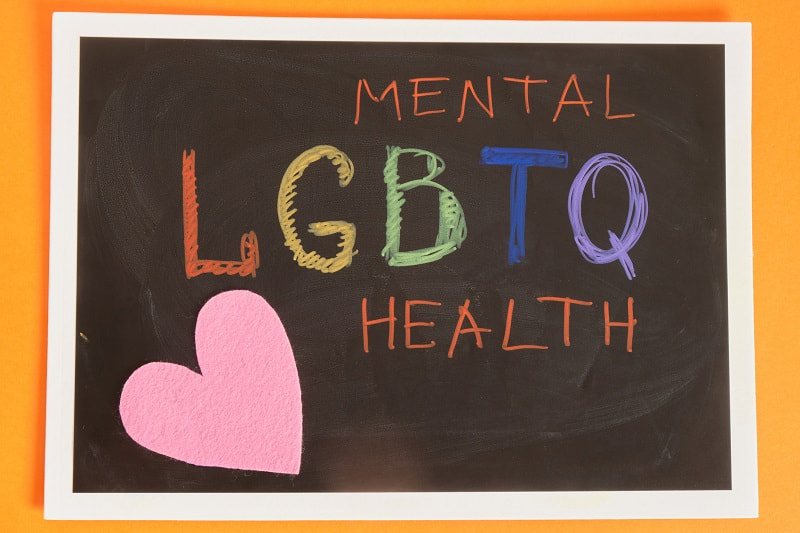|
In recent years, the LGBTQ+ community has made significant progress toward acceptance and equal rights. However, LGBTQ+ individuals may face difficulties in self-acceptance and mental health. LGBTQ+ people still confront particular challenges that might impact their mental health despite increasing mainstream acceptance. In this blog, we will look into the factors that contribute to the LGBTQ+ community's higher prevalence of mental health problems, the anxieties that they frequently face, and the significance of mental health services, including specialized psychiatrists in Orlando, FL, to support their well-being. Why Does the LGBTQ+ Community Suffer From Mental Illness?The LGBTQ+ community faces high rates of mental illness due to widespread stigma, discrimination, and social rejection. The constant exposure to negativity and the fear of rejection when coming out can lead to stress, anxiety, and chronic depression. Some LGBTQ+ individuals internalize social prejudice and nurture feelings of shame and self-loathing. Bullying, hate crimes, and violence disproportionately affect this community, often leading to trauma and post-traumatic stress disorder (PTSD). Addressing these externalities is essential in promoting inclusion, culturally appropriate mental health care, and reducing disparities. The Relation Between LGBTQ+ and Mental CrisisIt is important to understand that differences in mental health among LGBTQ+ people are not necessarily related to their sexual orientation or gender identity. Instead, the discrimination individuals experience and societal factors are to blame for these differences. LGBTQ+ people have a roughly three-fold higher risk of developing a mental health illness than the general population, according to the National Alliance on Mental Illness (NAMI). Fears of LGBTQ+ People
Why are Mental Health Services Important For LGBTQ+ People?
The Role of LGBTQ+ Support GroupsSupport groups designed especially for LGBTQ+ people can be very helpful for mental health. People can connect with others who can relate to their challenges in these groups, discuss their stories, and get support from their peers in a secure environment. Support groups can cover a variety of subjects, such as coming out, relationship difficulties, overcoming discrimination, and utilizing the healthcare system. LGBTQ+ community centers frequently provide support groups and resources for these people. The Importance of Inclusivity in Mental HealthcareMental healthcare providers must be aware of LGBTQ+ concerns and dedicated to offering inclusive and affirming care. LGBTQ+ people are guaranteed the support and affirmation they require without prejudice or discrimination when they get culturally competent care. In Orlando, behavioral healthcare professionals are committed to providing LGBTQ+ people with services that are accepting and sensitive to cultural differences. These service providers are aware of the particular difficulties experienced by LGBTQ+ people and strive to foster a welcoming and secure environment for all. Intersectionality and LGBTQ+ Mental HealthIt is critical to understand that LGBTQ+ people might be members of several marginalized groups, which can result in complex and interconnected forms of discrimination and inequities in mental health. The term "intersectionality" describes how social categories like race, gender, and sexual orientation are connected and how they overlap to produce different experiences. For LGBTQ+ individuals of color, for instance, racism may exacerbate the prejudice they experience, which can worsen its effects on their mental health. Recognizing and addressing intersectionality is vital in providing comprehensive mental healthcare for all LGBTQ+ individuals. LGBTQ+ Youth and Mental HealthLGBTQ+ youth are especially at risk for mental health issues. Adolescence can be challenging for people to learn who they are and come out. LGBTQ+ youth may experience despair, anxiety, and even homelessness due to bullying, rejection, and a lack of support from friends or family. LGBTQ+ youth organizations and inclusive school policies are only two supportive environments that can significantly improve a person's mental health. For LGBTQ+ adolescents to effectively traverse these issues, mental health services must be adapted to their specific requirements. The Impact of Legal Rights on LGBTQ+ Mental HealthThe mental health of LGBTQ+ people has improved as a result of improvements in legal rights and protections. Many places' passage of anti-discrimination laws and the legalization of same-sex unions have helped lessen some of the anxieties and pressures of discrimination. Although not all LGBTQ+ people have equal access to these protections, they must remember that legal rights can differ by location. Continued activism and awareness are essential for the community's mental health because the struggle for LGBTQ+ rights is ongoing, and obstacles still exist. The Need for LGBTQ+ Inclusive Sex EducationFor the mental health and general well-being of LGBTQ+ youth, comprehensive sex education that covers LGBTQ+ subjects is crucial. Many educational systems' sex education curricula are heteronormative and do not include LGBTQ+ identities and experiences. Youth who identify as LGBTQ+ may experience emotions of exclusion and disorientation due to the lack of inclusive education. LGBTQ+ kids can benefit from inclusive sex education by better understanding their identities, navigating relationships, and making educated decisions regarding their sexual health. It also promotes a more tolerant and empathetic society, lessening stigma and discrimination. When To Reach a Psychiatrist In Orlando, FL?For LGBTQ+ people who may be struggling with mental health issues, knowing when to get professional assistance is vital. Here are some indicators that it might be necessary to seek help from an Orlando, Florida, psychiatrist:
Building Resilience in the LGBTQ+ CommunityResilience is the ability to bounce back from adversity, and LGBTQ+ individuals have shown remarkable resilience in the face of discrimination and mental health challenges. Building resilience can be a powerful tool for improving mental health and wellbeing. Some strategies for building resilience in LGBTQ+ communities include:
Orlando Psychiatric Services for LGBTQ+ WellbeingDon't be afraid to get treatment if you or someone you know is experiencing mental health problems connected to their LGBTQ+ identity. Orlando psychiatrists provide expert assistance to LGBTQ+ people in overcoming these obstacles and reaching mental wellness. Remember that asking for help is a sign of strength and that you deserve the service and care required to live a healthy and meaningful life. We can work toward a future where LGBTQ+ people have the same mental health and well-being as everyone else by continuing to spread awareness, fight for LGBTQ+ rights, and encourage inclusiveness and acceptance.
0 Comments
Your comment will be posted after it is approved.
Leave a Reply. |
LOCATED AT 341 N MAITLAND AVE, STE 340, Maitland, fl 32751 |
Telephone and fax -
|
OUR SERVICES | OUR TEAM | OUR BLOG | CONTACT US | SITEMAP
|






